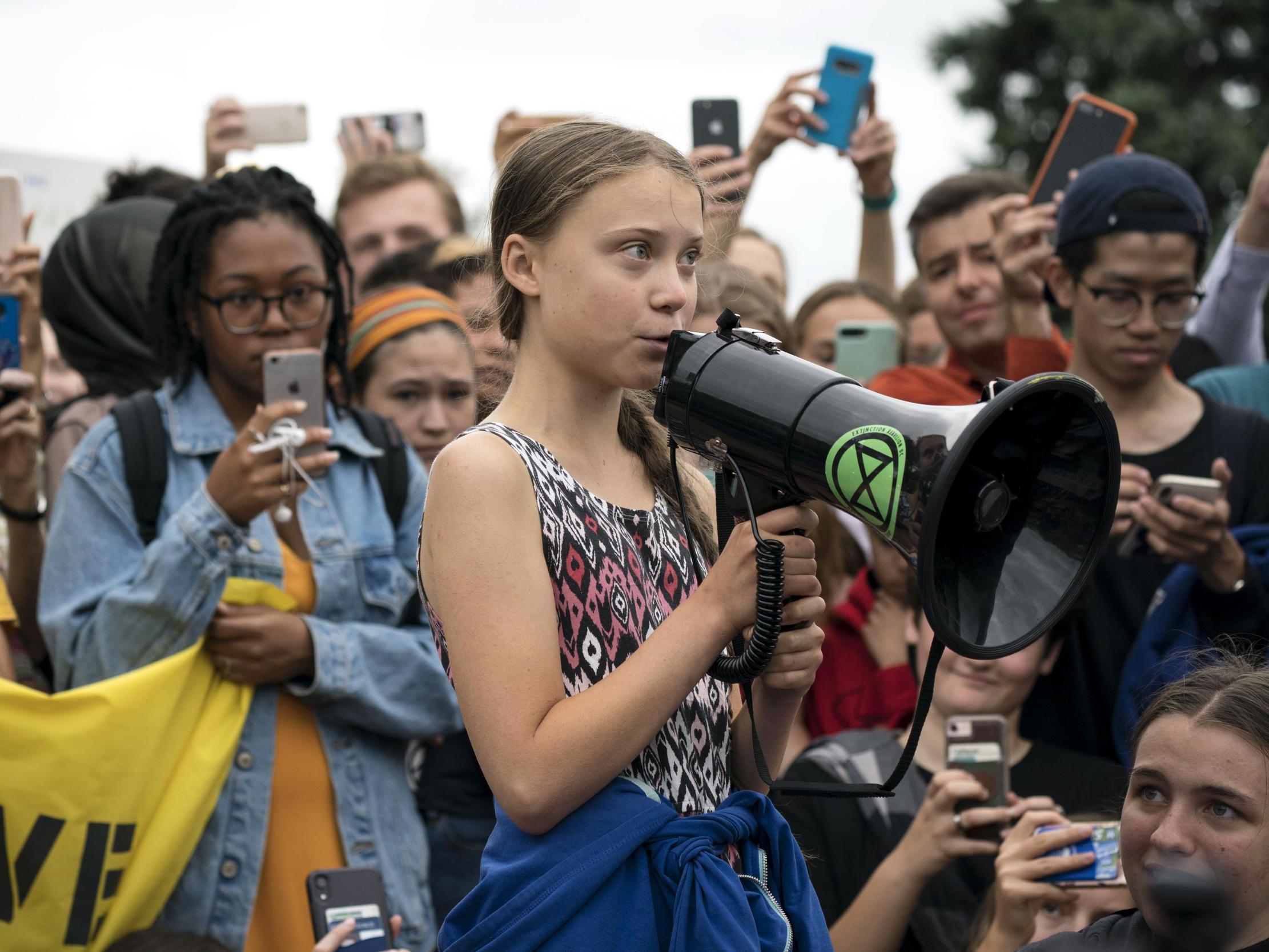'Climate Strike' named official word of the year for 2019
'Milkshaking' also added to dictionary following politically motivated attacks on Nigel Farage and Tommy Robinson

Your support helps us to tell the story
From reproductive rights to climate change to Big Tech, The Independent is on the ground when the story is developing. Whether it's investigating the financials of Elon Musk's pro-Trump PAC or producing our latest documentary, 'The A Word', which shines a light on the American women fighting for reproductive rights, we know how important it is to parse out the facts from the messaging.
At such a critical moment in US history, we need reporters on the ground. Your donation allows us to keep sending journalists to speak to both sides of the story.
The Independent is trusted by Americans across the entire political spectrum. And unlike many other quality news outlets, we choose not to lock Americans out of our reporting and analysis with paywalls. We believe quality journalism should be available to everyone, paid for by those who can afford it.
Your support makes all the difference.“Climate strike” has been crowned Collins Dictionary’s word of 2019.
The phrase refers to a form of protest made famous by Swedish environmentalist Greta Thunberg, whose #FridaysForFuture movement prompted thousands of school children around the world to go on strike protesting the lack of action to combat climate change.
The phrase “climate strike” was first registered in November 2015 after the first event to be so named took place to coincide with the UN Climate Change Conference in Paris.
But thanks to Thunberg, it has since become a worldwide movement.
Helen Newstead, language content consultant at Collins, said the politically charged atmosphere of recent years was “clearly driving our language”.
“‘Climate strikes’ can often divide opinion, but they have been inescapable this last year and have even driven a former word of the year,” Ms Newstead added in reference to “single-use”, which was named Collins’ word of 2018 thanks to its usage regarding disposable plastics like water bottles, which are often used once and thrown away.
In addition to unveiling its word of the year, Collins has also pointed to a range of key words that have emerged this year as reflecting our ”ever-evolving culture and the preoccupations of those who use it”.
These words include “bopo”, short for body positivity, and “non-binary” in reference to people who choose not to identify as male or female and prefer “they” pronouns as opposed to “he” or “she”.
The dictionary’s selection comes after singer Sam Smith said this year they identify as non-binary, following a host of other celebrities including actor and activist Rose McGowan and Queer Eye star Jonathan Van Ness.
Other words listed as significant by Collins include “influencer” and “cancelled”, which refers to the act of boycotting someone on social media following something controversial they said or did.
Additionally, Collins has unveiled a “Brexicon” list of terms relating specifically to Brexit, such as “Project Fear” and “milkshake”, which the dictionary defines as “to throw a milkshake or similar drink over a public figure in order to humiliate him or her”.
The addition of “milkshake” comes after both Nigel Farage and Tommy Robinson were subject to this form of humiliation.
“The dictionary has no opinion on Brexit,” said Ma Newstead, “other than to say it has been quite generous in its gifts to the English language, as well as I am sure inspiring the use of many old-fashioned expletives.
“The Brexicon could be even longer, but we feel our selection sums up many of the key themes since Collins named Brexit Word of the Year in 2016. As the process continues through this latest ‘flextension’, no doubt more words will emerge until we come to a ‘Brexend’.”
Join our commenting forum
Join thought-provoking conversations, follow other Independent readers and see their replies
Comments